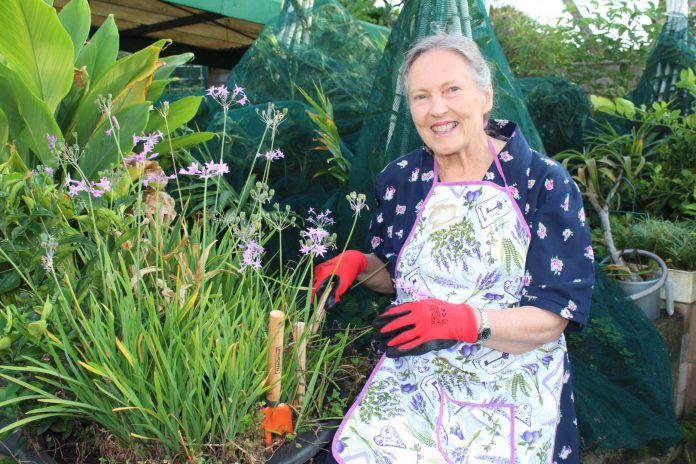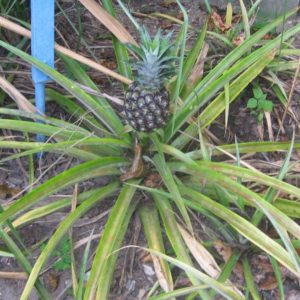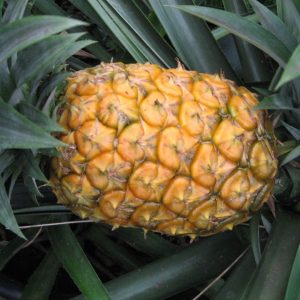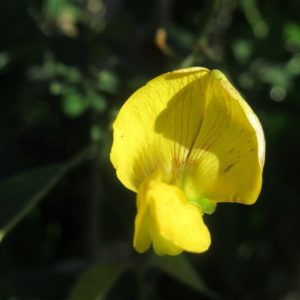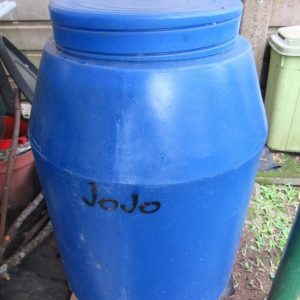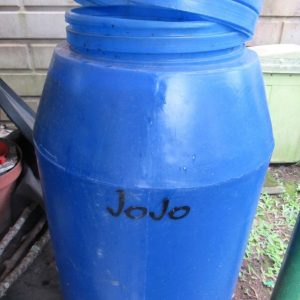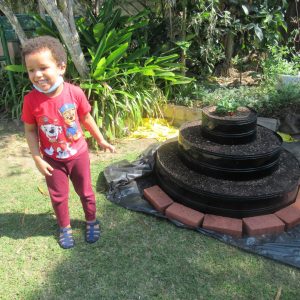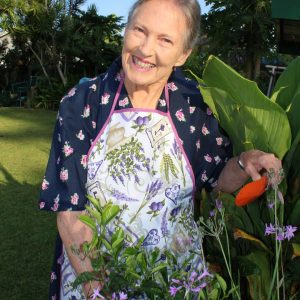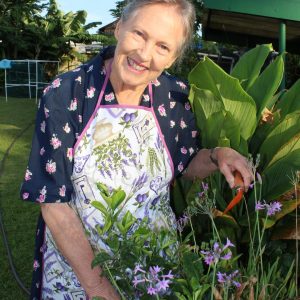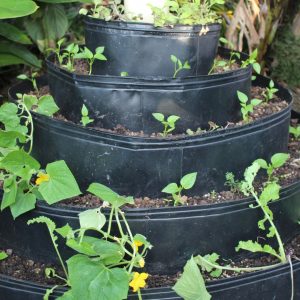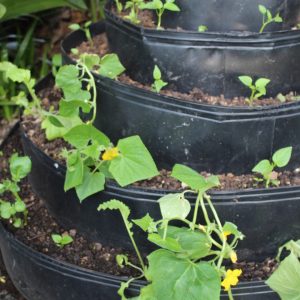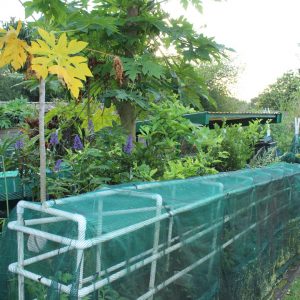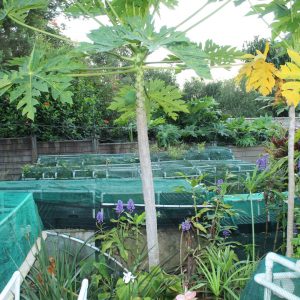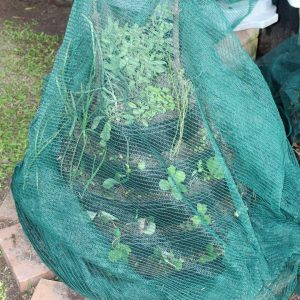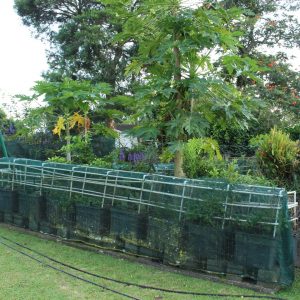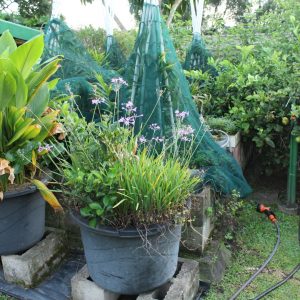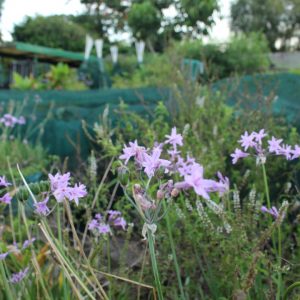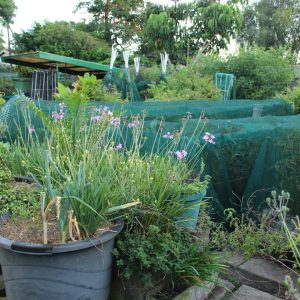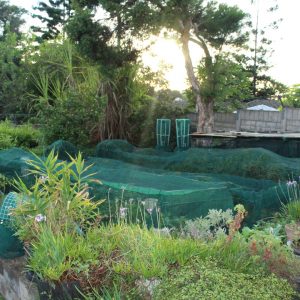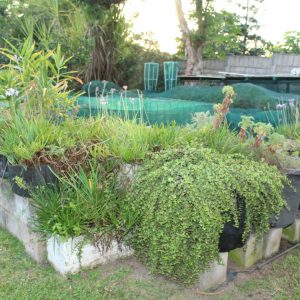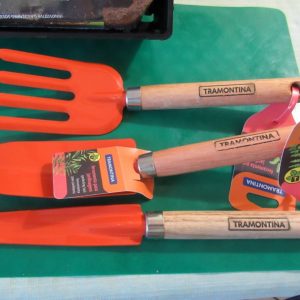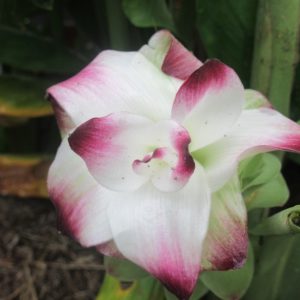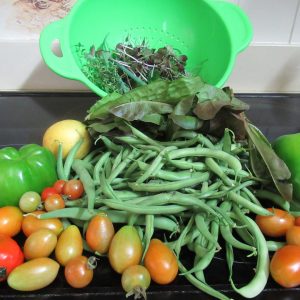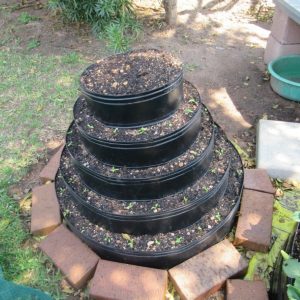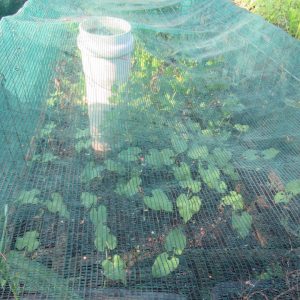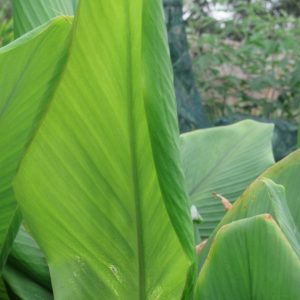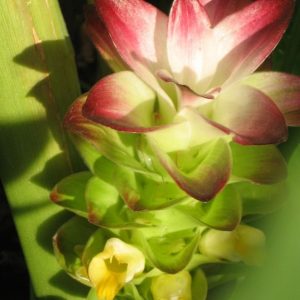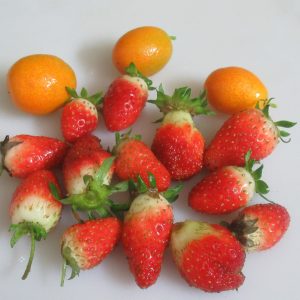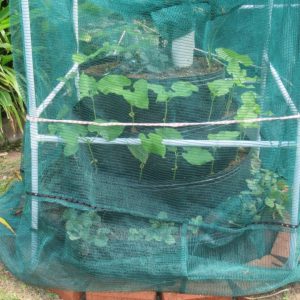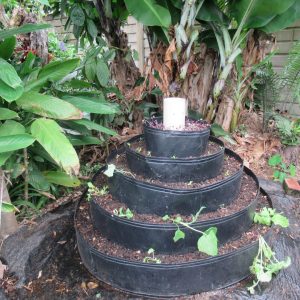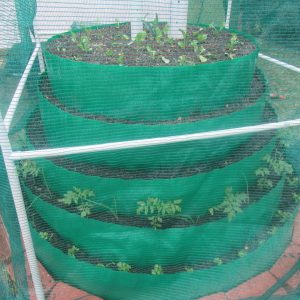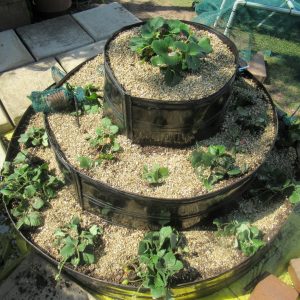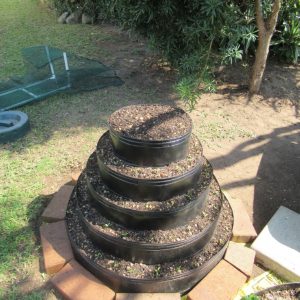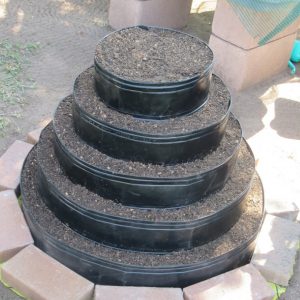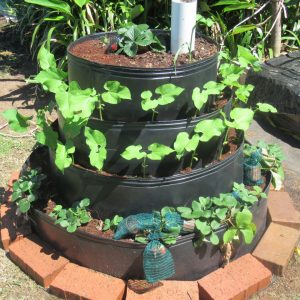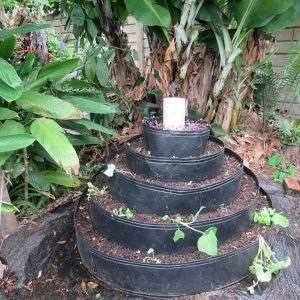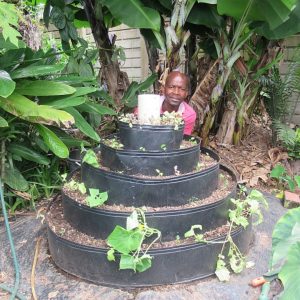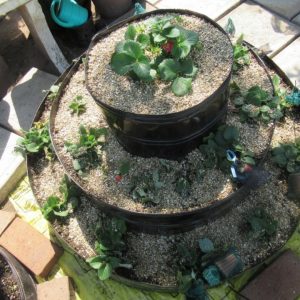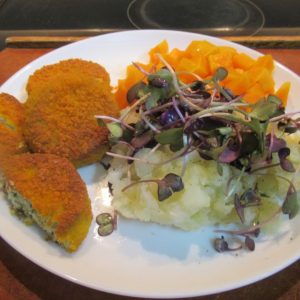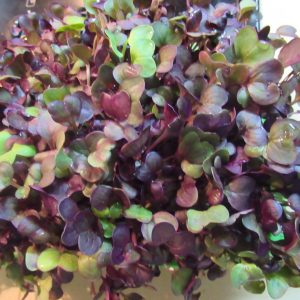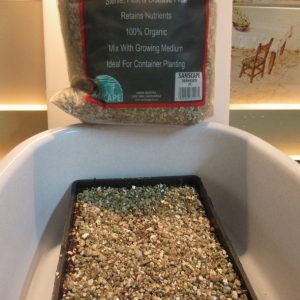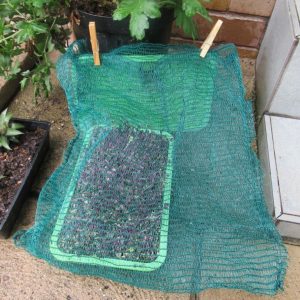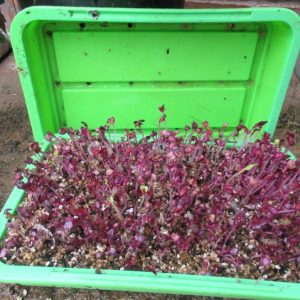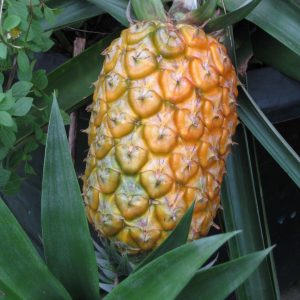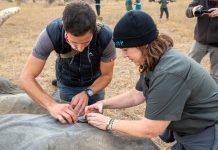Ashley resident, Natalie Rowles, is an environmental heroine and has devised a budget and eco-friendly idea for even the smallest of gardens to grow vegetables.
Natalie has urbanised her garden to foster survival culture and healthier living and is truly eco-focussed. At the age of 77, she actively plants and grows organic fruit and veggies, recycles into an earthworm farm, uses a solar geyser and has just launched her latest initiative – the Rowles Cone Planter – an easy and greener way of growing vegetables without needing lots of space.
Over the past 17 years this Greenie has collected, sowed and transplanted 9 000 indigenous Yellowwood Saplings into bags, and donated them to schools, communities, municipalities, forests and more. She has been recognised as an environmental champion by Mail & Guardian’s Greening the Future awards for actively and positively curbing climate change and preserving the environment.
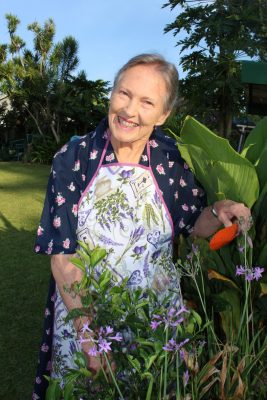
“Using up mountains of waste material and leaving behind a green and clean world has always been my mission. My planters are not only environmentally safe but provide a stress-free way of creating your own victory garden – one which will help save you money and provide fresh food and healthy living.”
Since her childhood days spent living on a farm, Natalie’s been obsessed with growing food crops, flowering plants, doing research and gathering hands-on experience so she can grow and supply food crops to her family. In later years and more recently, spurred on by the pandemic, rioting and no more farm to garden, she’s created more space in her residential garden by growing vertically. The result … her planters, which she proudly tells us house up to 120 plants in the same space that used to only accommodate 20.
“You can grow your crops in these cone planters as is, but I’ve gone a step further and inserted my DIY vertical wormery (housing my Eisenia Fetida composting earthworms) in a wider perforated PVC pipe. I feed them bio-waste and seedless, rootless weeds. This in turn supplies liquid compost from the top ring of the planter down to the second bottom ring.
It has proved invaluable – 100 per cent organic and produces non-chemical food crops grown at hardly any cost!”
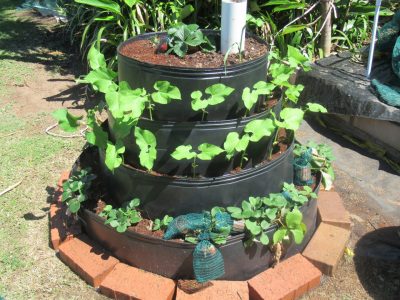
Natalie’s first attempt at creating the cone planters (when food stocks were low at the start of the pandemic) was made by using green plastic and screws. Still doing a good job and supplying ample food crops, these are not as long lasting as her latest design that has a lifespan of anywhere from 10 to 20 years.
The planters take around seven days to manufacture and come in two sizes (4ft and 6ft) with six tiers each. Every tier has a depth of 20cm, instructions on how to set them up is also included and what compost and cost-effective soils are needed for best results in quality food crops. The small planter costs R270 and the large planter R470.
“They’re designed to take up minimum space with maximum production of vegetables. They can also be adjusted to accommodate children and wheelchair-bound gardening enthusiasts by removing the top or bottom tiers accordingly. Even flowers and herbs can be grown in the cone planters.”
Natalie suggests evening primrose, perennial basil, holy basil, dill, thyme, coriander and arugula to attract bees and other beneficial insects to the garden. Marigolds aid the soil against eel worm and penny royal herbs, which can either hang over the planter edges or grow in between plants, keep ants at bay and preserve moisture too. You can even grow your own liquid fertilizer – comfrey leaves which, when crammed into a large container with a hole in the bottom and a small container underneath to catch the thick black liquid, can feed the food growing cone planters.
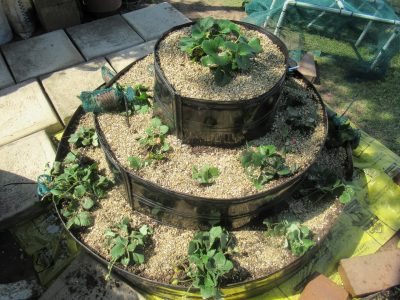
“If you’ve got a penchant for succulents, you can plant aloes in the planters top levels and smaller fleshy plants lower down. This way of planting also keeps labour and watering to a minimum as leaves that fall, cover and shade the spaces between plants and helps preserve the moisture in the soil, especially in our harsh summer heat.”
Though it’s not necessary, in her own garden Natalie has attached a 40 per cent green shade cloth to a DIY PVC frame to protect her planters and plants from forces of nature, intruding animals and bird damage. “This set-up makes it ideal for growing micro-greens (especially tsai-tsai radish) and strawberries faster. It also saves on not having to have a tunnel, electricity for fans, heat mat, liquid compost etc, and crispy greens can feed a family in less than two weeks.”
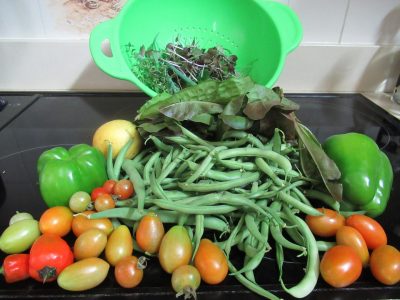
To help stop climate change, Natalie is on a mission to stop bio-waste entering landfill sites, which creates methane and stems to health problems. An even bigger task is for her to turn Durban into a Green City and get it producing free food for its poorest people.
“With vegetable vendors on streets, there’s a lot of bio-waste like banana peels, outer parts of lettuce, cabbage and other vegetable leaves that could all do so much better in existing bins when covered by municipal staff in a truck to prevent smells and flies, using fresh grass cuttings on top. These bins’ contents can then be used for the growing and filling up of Rowles cone planters nearby to produce free vegetables to those who need them to eat. It could be a tourist attraction to show how warm eThekwini’s Heart is!”
Details: Contact Natalie on 073 171 5883.

